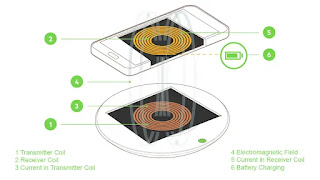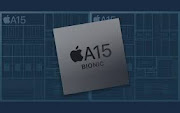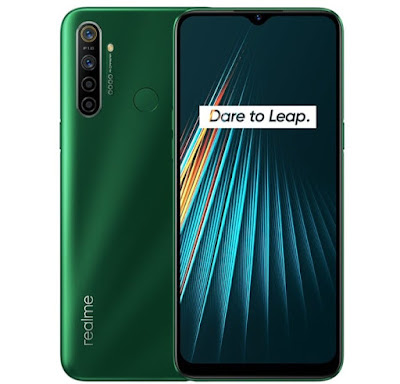How Wireless and Reverse Wireless Charging works in a Smartphone
How does Wireless Charging works?
Wireless
Charging uses Electromagnetic Induction to wirelessly transmit power between a
wireless charger and a device that can be charged wirelessly.
Simply, there is one coil in the wireless charger (Transmitter) and another in the smartphone (Receiver). The coil is made up of copper and used as the medium to transfer the power from the charger to the device. When current is passed through the coil, it generates an Alternating Magnetic Field. The smartphone which is to be charged also has a Copper Coil Receiver. This picks up the Alternating Magnetic Field and induces a current which is then passed through a Power Rectifier (inside smartphone) to the Battery of the smartphone to charge it. Wireless Charging requires two coils to be aligned perfectly for the Power transmission. Many companies use Magnets in both their Devices and Chargers for good and secure placement.
In simple
terms, when you place a smartphone on wireless charging pad; the wireless
charger sends signal from its coil,
which is picked up by the Receiver Coil (Smartphone). You will see an LED
indication on your Charger Pad and your smartphone starts charging.
Two Charging Standards
1. Qi (pronounced as “Chi”) was a standard by the WPC (Wireless Power Consortium) is most used Standard.
2. PMA (Power Matter Alliance) Standard is also used in the devices.
Both Standards are based on Inductive Charging.
Qi is compatible with Qi; means to charge a device which is Qi based
only Qi based charger is required, you cannot charge a Qi based device with a
PMA based charger, same for PMA.
Reverse Wireless Charging
Reverse wireless charging is also popularly known as Power Sharing.
It is similar to wireless charging, only the difference is that here the
Transmitter is in the smartphone and uses its own battery to charge wirelessly
another device.
Mostly Reverse wireless charging
is used to charge small device like Wireless Earphones, Smart watches and Smart
bands.
Downsides of Wireless Charging
1. Wireless Charging is slower
than Wired charging that include Fast-Charging technology.
2. The phone may little bit heat up.
4. Thick cases resist wireless charging.
For More Information watch our Video on YouTube
In the upcoming Future the devices will only run on the Electric Power
and get charged only by Wireless Charging. Wireless Charging Technology is
improving day by day, new innovative methods are under implementation. Not only
smartphones, electric cars also use wireless charging; the near Future is all
wireless with more Advanced Devices and Technology.
Hashtags :
#wirelesscharging #wirelessreversecharging #qicharging #smartphone #technology #aktecky







Comments
Post a Comment